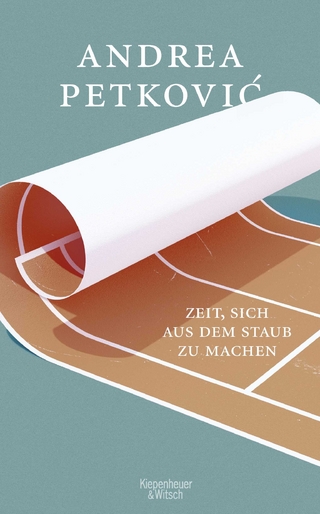
Experiencing Flow in Tennis Through Attention Control
Diplomica (Verlag)
978-3-96146-692-4 (ISBN)
Vladislav Ilijin was born in 1950 in Yugoslavia/Serbia. His coaching career began with the state exam in Novi-Sad, Serbia, in 1972. In 1986, he acquired a B-coaching-license for high-performance sports in Germany. The authors' field of activity comprises foundations, advanced and high-performance training in WTB, DTB as well as practical coaching work with WTA players. For five years, he served as a project manager for talent scouting in tennis. His unpublished scientific work addresses tactics in tennis defining a competition as a typical stress situation. He states the hypothesis that optimal performance is attained in a stress-free state. He has been exploring the topic of flow experiences since 1977.
Text sample:
Chapter 2.2 Awareness - a self-governed system:
According to Csíkszentmihályi, optimal experience and our happiness depend on how much we can control our awareness from one moment to the next. The energy of our psyche is directed at real objectives of our own choosing. When we direct our attention onto a task, our awareness is ordered, everything else is relegated to the background. The happiest moments of our lives are those when we are fully dedicated to achieving an objective we chose.
This begs the question of what awareness really is.
Csíkszentmihályi describes awareness as a self-organized and self-controlled system (CSÍKSZENTMIHÁLYI 1997, P. 49). The purpose of our awareness is to present information about our environment and our bodies with the help of extero- and interoceptors in such a way that the body can respond adequately.
Sensations, perception, emotions and thoughts are organized, processed, put in relation, and prioritized (CSÍKSZENTMIHÁLYI, 1997, p. 50). The exteroceptors are the classic five senses, i.e. optical (seeing), acoustic (hearing), gustatory (tasting), tactile (touching) and olfactory (smelling) analyzers. Interoceptors help us sense the inner state of our body, our joint receptors, and our sense of strength. For more in this, consult: 'Die Bewegung des Menschen - Entstehung und Organisation' (SCHEWE, 1988).
The complex capabilities of our awareness also include our ability to positively influence our own inner state. To do this, we must alter the contents of our awareness. One of the abilities of our awareness is reordering, reinterpreting, or reinventing information, for instance when we write poetry, tell lies, elaborate scientific theories, or define meaning (CSÍKSZENTMIHÁLYI 1997, P. 50).
One capability of our awareness is significant when it comes to coping with stress: our ability to interpret situations in different ways. For instance, when we interpret a situation as a challenge and act accordingly, we will certainly be more curious and active than if we consider that same situation a threat (stress). In the latter case, we might feel exposed, resigned, and powerless, while in the first scenario, we feel active, alert, and motivated.
There is a series of theories and models on awareness. In his 'flow' theory, Csíkszentmihályi prefers "the phenomenological model of awareness", which "is based on information theory".
Phenomenology states that during a mental process, our direct experiences are understood best. This means that we can determine, or at least influence, the direction of our thoughts, feelings, and intentions (CSÍKSZENTMIHÁLYI, 1997, P. 53).
The Latin word for awareness, consciencia, literally means co-knowledge, which is exactly what it means. Events only have meaning for us if they appear in our consciousness.
Csíkszentmihályi uses the metaphor of a mirror to describe consciousness. What our senses perceive outside of the body (environment) and inside of the body becomes perceptible, or conscious. Yet we also overlook many things that are clearly there, but that we don't perceive. What we perceive depends, among other factors, on what we focus on. This becomes clear in the YouTube video 'Test Your Awareness: Do the Test' (see VIDEO 1). Our reflection of reality is determined by what we perceive. According to Csíkszentmihályi, our intentions are the central force that bring order to our awareness. An intention is an action we plan to do. When we desire something, this information appears in our awareness and directs our focus on the limited amount of information or objects that are associated with this desire. Intentions are ranked hierarchically. This makes it possible to reflect prior to taking action, and control it based on our priorities. Intentions direct our focus onto objects, which gives order to our thoughts (CSÍKSZENTMIHÁLYI, 1997, P. 56).
Conscious processing of information has ist limitations, however. From the wealth of
| Erscheinungsdatum | 04.03.2019 |
|---|---|
| Zusatzinfo | 7 Abb. |
| Sprache | englisch |
| Maße | 142 x 206 mm |
| Gewicht | 134 g |
| Themenwelt | Sport ► Ballsport ► Tennis |
| Schlagworte | attention • Consciousness • Csíkszentmihályi, Mihály • flow • flow in Tennis • focus • Sports psychology • training concept |
| ISBN-10 | 3-96146-692-0 / 3961466920 |
| ISBN-13 | 978-3-96146-692-4 / 9783961466924 |
| Zustand | Neuware |
| Haben Sie eine Frage zum Produkt? |
aus dem Bereich


